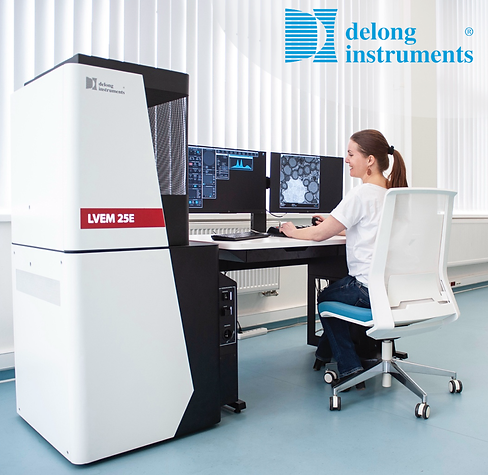
CRYOZ 2025
November 17-18, 2025
UNIVERSITY OF WOLLONGONG, NSW
Workshops & Masterclasses
A series of hands-on workshops and masterclasses will take place from 19–21 November across the three host universities — the University of Wollongong, the University of New South Wales, and the University of Sydney. Led by a mix of national and international experts, as well as industry partners, these sessions will offer in-depth training in emerging cryo-electron microscopy techniques, tools, and workflows.
Advanced Electron Microscopy Grid Preparation Techniques
University of Wollongong
19 November 2025
(Select 1 day workshop for registration)
This one-day workshop offers early-career cryo-EM and TEM researchers practical training in advanced electron microscopy grid preparation techniques. Through a series of hands-on lab rotations, participants will fabricate and evaluate four types of grids graphene, graphene oxide (GO), functionalised GO, and carbon-coated —suitable for cryo-EM and high-resolution imaging applications.


Electron Tomography and Subtomogram Averaging Integrated Pipelines
University of Wollongong
19-21 November 2025
(Select 2 days workshop for registration)
This workshop, co-sponsored by Microscopy Australia and Instruct-ES, offers a comprehensive overview of processing electron tomograms using integrated pipelines. Participants will learn best practices for tilt-series alignment, tomogram reconstruction, particle picking, and subtomogram averaging, with a focus on reproducibility, metadata tracking, and automation. The sessions will be hands-on demonstrations using Scipion and other commonly used tools in the field.
Imaging with High-Speed Bio-Atomic Force Microscopy
University of Sydney
20 November 2025
(Select 1 day workshop for registration - NOW FREE)
With the recent development of faster, more sensitive scanning technologies, biological atomic force microscopy (bioAFM) is increasingly being used in parallel with cryo-EM and negative stain TEM to characterise the topography, biomechanical and bioelectric properties of macromolecules in their native state. This one-day workshop offers structural biologists and bioengineers a unique opportunity to gain practical experience using bioAFM. Participants will learn about the underlying theory of bioAFM and participate in a series of lab demonstrations exploring the toolkit that high-speed bioAFM has to offer imaging molecules at the nanoscale.


Automation and AI-Enhanced Plasma Technologies for Cryo-EM Sample Preparation and Imaging
University of Wollongong
20 November 2025
(Select 1 day workshop for registration - NOW FREE)
This one-day workshop, hosted by Thermo Fisher Scientific, introduces the latest plasma-based technologies for cryo-electron microscopy through a combination of expert presentations and live remote demonstrations. Participants will learn about cryo lamella preparation using the Thermo Scientific Arctis, with a focus on precision, automation, and reproducibility in sample milling. The program will also showcase AI-driven workflows in the Thermo Scientific Hydra Bio for volume imaging, highlighting how artificial intelligence enhances acquisition, reconstruction, and segmentation. By combining conceptual sessions with direct demonstrations on Thermo Fisher instruments, the workshop offers an integrated perspective on how plasma, automation and AI technologies are transforming structural and cellular imaging.
Low Voltage Electron Microscopy as a
Screening Tool for Cryo-EM
University of Sydney
19 November 2025
9am - 12pm or 1pm - 4pm
20 November 2025
9am - 12pm or 1pm - 4pm
(Select half day workshop for registration - NOW FREE)
This half day workshop, hosted by AXT, you will learn how to streamline your cryo-EM workflow with Low Voltage Electron Microscopy (LVEM). In this hands-on workshop, you'll explore how the Delong Instruments LVEM 25E compact low voltage electron microscope, equipped with TEM, STEM, SEM and EDS, and is on site for live demonstrations, provides rapid, high-quality imaging of negatively stained samples.
Discover how this compact, easy-to-use system helps researchers quickly assess sample quality, optimize grids, and save valuable time on high-end cryo-EM instruments.
